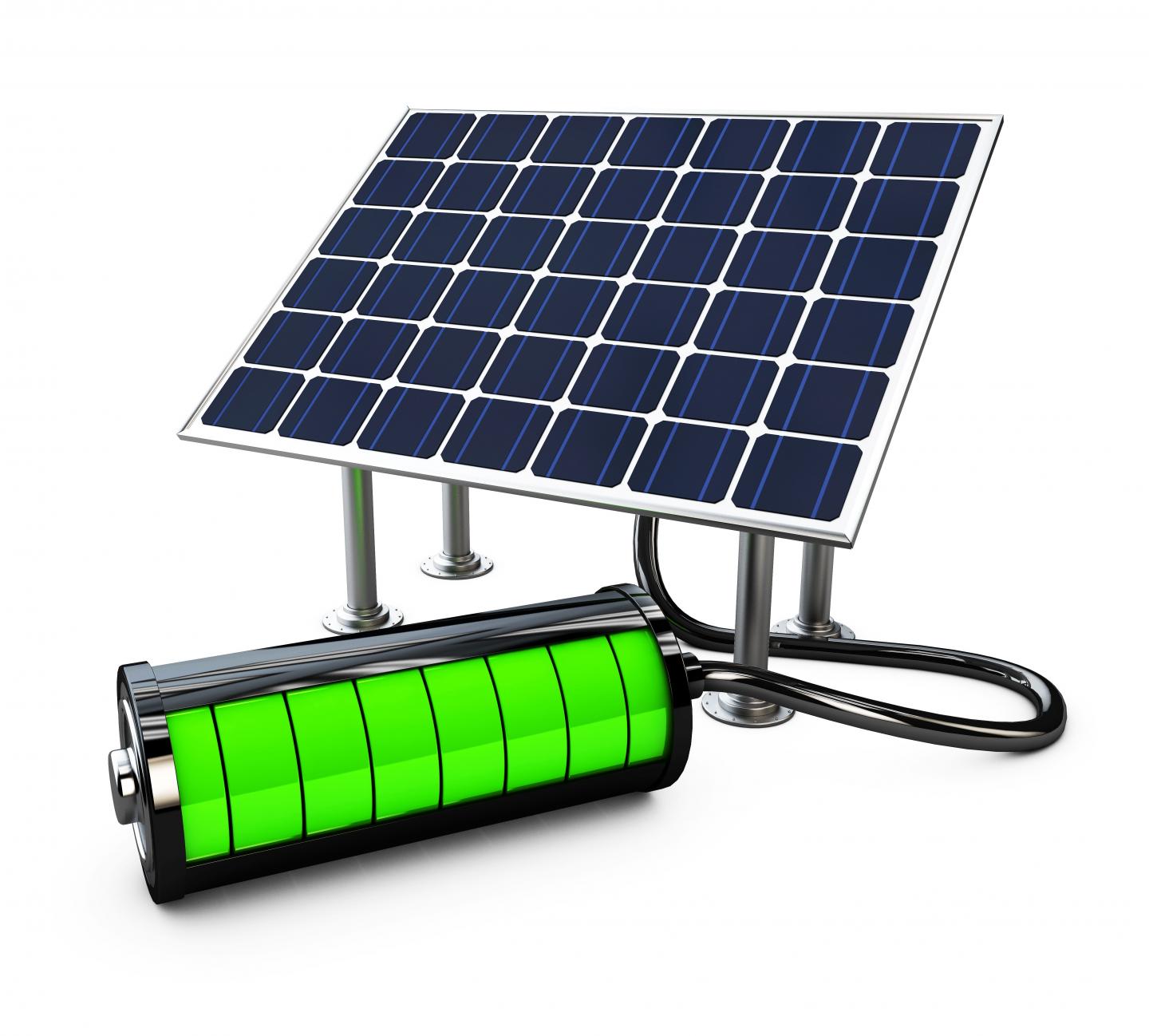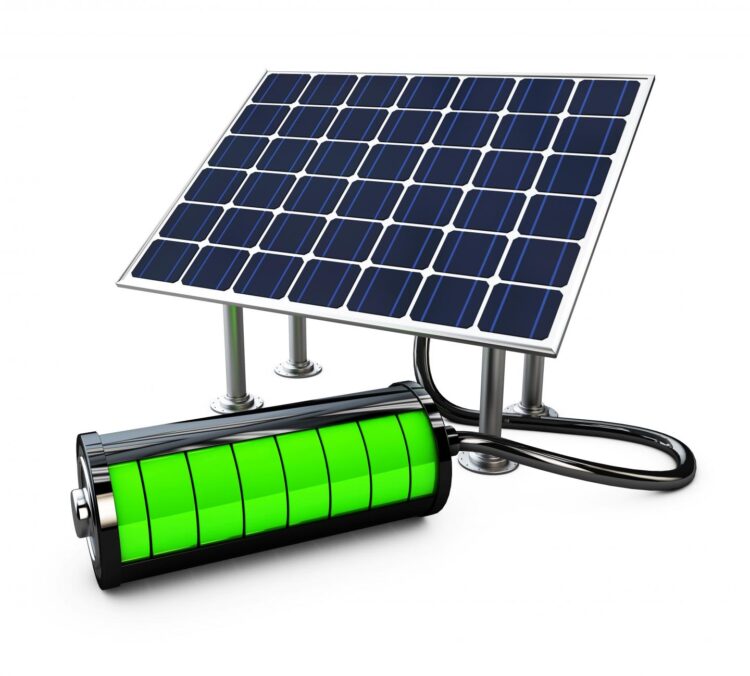‘Testbench’ project improves quality of measurement results and facilitates comparison

Credit: Photo: Shutterstock/Victor Josan
More and more photovoltaic systems are equipped with batteries that store power produced during sunshine for later use. Such solar power storage systems enable operators to use a maximum fraction of the solar power produced for own purposes. The more efficient the storage system is, the higher is the economic profit. The “Testbench” project enhances the quality of efficiency measurements for better comparison of battery systems by planners and operators. The collaboration project funded by the Federal Ministry for Economic Affairs and Energy (BMWi) is carried out by Fraunhofer IEE, Karlsruhe Institute of Technology (KIT), VDE|DKE, and TÜV Rheinland. Associated partners are AIT, BSW, and BVES.
Photovoltaics directly converts sunlight into electrical energy and, thus, contributes to sustainable power supply. For operators of photovoltaic systems, it is worthwhile using a maximum fraction of the solar power produced for own purposes. This is achieved by applying batteries that store the power generated during sunshine until later use at times at which the photovoltaic power production is zero.
The market for solar power storage systems is growing continuously. In 2018 already was the 100,000th solar power storage system taken into operation in Germany. Such systems are mainly used by private households to increase their own consumption of solar power and their grid independence. “To guarantee economic profit for the operator, efficiency of solar power storage systems is crucial,” explains project head Fabian Niedermeyer from the Fraunhofer Institute for Energy Economics and Energy Systems Technology (IEE). Improving the quality of efficiency measurements of such systems for better comparison by planners and operators is the goal of the recently started “Testbench” project.
The “Testbench” (Test Method to Determine the Efficiency of Solar Power Storage Systems – From Guidelines to Standards) project focuses in particular on the reproducibility and comparability of results measured on the different test benches of the project partners. A ring experiment in the second half of the project will serve to validate improvements and confirm reproducibility of the results of the partners. As the partners play leading roles in the standardization group “Characteristics of Stationary Battery Storage Systems” (AK 371.0.9.) of the German Commission for Electrical, Electronic, and Information Technologies of DIN and VDE (DKE), the results obtained will be incorporated in standardization work. “national standard or VDE application rule would be an important step to further strengthen the market position of German manufacturers,” says Nina Munzke, Head of the Systems Storage and Analysis Group of KIT’s Battery Technology Center. Thanks to the large number of international customers of German manufacturers of solar power storage systems, the results will then also be included in international standards. “This will increase the competitiveness of German manufacturers on international markets,” Munzke says. In addition, workshops are planned for regular exchange with different German and international stakeholders.
Details on the “Testbench” Project
The “Testbench” project started on January 01, 2020 and is scheduled until December 31, 2021. It is funded by the Federal Ministry for Economic Affairs and Energy. Within the project, the Fraunhofer Institute for Energy Economics and Energy Systems Technology (IEE) in Kassel, together with KIT, the German Commission for Electrical, Electronic, and Information Technologies of DIN and VDE (VDE/DKE), TÜV Rheinland and the associated partners of the Austrian Institute of Technology (AIT), the German Solar Association (BSW), and the German Energy Storage Association (BVES), studies the adaptations and detailing required for the measurement and evaluation rules in the efficiency guidelines to improve the quality of results. The efficiency guidelines standardize characterization of efficiency, standby consumption, and control efficiency of photovoltaic battery systems. The guidelines were developed by the expert group “Effizienzleitfaden” (efficiency guidelines expert group) of BVES and BSW, together with members of different research institutes, test laboratories, and manufacturers of solar power storage systems. To facilitate comparison of various systems using basic methods, reproducibility of the results is indispensable. Preliminary studies, however, revealed that measurements of the same storage systems by different measurement institutes sometimes produce very different results. Moreover, experience shows that framework conditions of measurements still remain to be specified in more detail. In particular, this applies to precision of power and voltage sensors and the scanning rates and period durations used for averaging.
###
Fraunhofer Institute for Energy Economics and Energy Systems Technology (IEE)
Fraunhofer IEE in Kassel conducts research for the transformation of energy systems. It develops solutions for technical and economic challenges to further reduce the costs of use of renewable energy sources, to secure supply in spite of volatile power generation, to ensure grid stability on a high level, and to make the energy transition an economic success.
More about the KIT Energy Center: http://www.
External Link
Press contact:
Martin Heidelberger, Redakteur/Pressereferent, Tel.: +49 721 608-21169, [email protected]
Being “The Research University in the Helmholtz Association”, KIT creates and imparts knowledge for the society and the environment. It is the objective to make significant contributions to the global challenges in the fields of energy, mobility, and information. For this, about 9,300 employees cooperate in a broad range of disciplines in natural sciences, engineering sciences, economics, and the humanities and social sciences. KIT prepares its 24,400 students for responsible tasks in society, industry, and science by offering research-based study programs. Innovation efforts at KIT build a bridge between important scientific findings and their application for the benefit of society, economic prosperity, and the preservation of our natural basis of life. KIT is one of the German universities of excellence.
Media Contact
Monika Landgraf
[email protected]
Original Source
https:/





